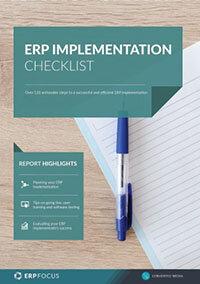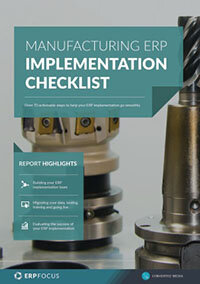Do you really need that ERP consultant?
ERP consultants are expensive, but since most businesses install any ERP only once a decade or even less frequently, they probably do not have people on board with the necessary expertise who are waiting around for another project. ERP consultants might be a necessary evil but there are ways to minimize the cost, and even get a lot of value from them. You just need to proceed carefully.
Check them out carefully
You will analyze the ERP system itself to ensure it is a good fit for your needs. Your consultant needs to be analyzed too. What successful (and unsuccessful) implementations have they worked on in the past? How close were the client businesses to your business? Does the consultant business culture match yours? Dig even deeper. What people will be assigned to your business? How long have they worked for the consultant company? Before that, how much experience to they have? Who will move in if that person cannot complete the assignment at your business? Get references and make your own background investigation. The ERP will be yours for a long time and if you read the fine print, any risk is yours.
Recommended reading: make sure your ERP project goes well with our 11 step guide to ERP implementation success.
Hire your own consultant
Find a person who will work for YOU. A consultant that is employed by any outside consultant company certainly will care about your business, but their pay check does not have your business’s name on it. The arrangement can be as an employee or contractor. You might find the right person already working for you and only have to change their job title to get a good consultant.
Your ERP consultant is also part of a larger team that will select and implement your ERP system. Try to use as many of your own people to staff that team. If you need to temporarily replace the work some of those people do, a short-term temp who can do the work will be less expensive that an ERP consultant.
Watch out for up-selling and keep the project moving quickly
Many ERP consultants who work for outside businesses are paid partly on commission. That is not necessarily bad, but pay attention when they suggest another module of some customization might be added. Since all of are watching our wallets, keeping the cost as low as possible is important.
With an ERP system, installing the basic modules with no customization as quickly as possible is often the best practice. Keeping the project moving quickly is important as the more time goes by, the more time available for someone to find an add on that just has to be purchased. After the project is complete, then begin to look at customization and additional modules.
Free white paper

ERP Implementation: 9 steps to success
The 9 proven steps you should follow when implementing ERP

Featured white papers
-

ERP Implementation: 9 steps to success
The 9 proven steps you should follow when implementing ERP
Download -

ERP Implementation Checklist
Over 120 actionable steps to implementing a new ERP successfully
Download -

Manufacturing ERP Implementation Checklist
Over 70 actionable steps to rolling out new manufacturing ERP software
Download
Related articles
-

The case for multi-tier ERP implementations
Learn more about multi-tier ERP implementation and why you might need one
-

Secret KPI: Why Your ERP Implementation Team Matters More Than Software
Learn how Godlan ensures successful ERP implementation for manufacturers with proven strategies &...
-

An example ERP implementation team structure for your project
Learn about three key elements of an ERP implementation team and the individuals who contribute w...

